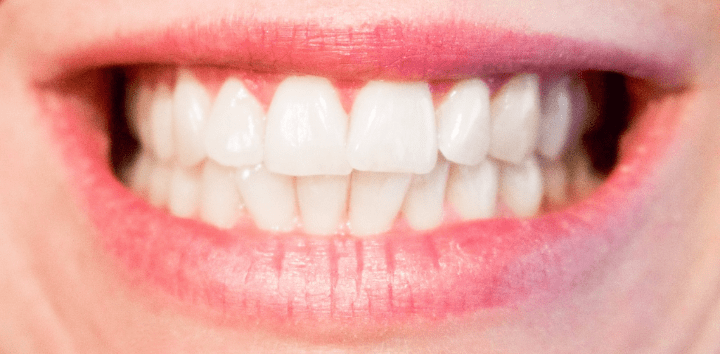Teeth grinding, also known as bruxism, is a common dental behavior that can lead to more severe oral care issues the longer it persists. You may not even know that you are grinding your teeth – most instances of teeth grinding occur while sleeping. It’s important to be able to spot the early signs of teeth grinding so that you can discuss the problem with your dentist and get proper treatment.
Signs of Teeth Grinding
Teeth grinding can lead to some symptoms that you can observe without professional assistance. Early warning signs of teeth grinding include muscle aches and stiffness around the mouth and jaw, stiffness around your neck and shoulders, ear discomfort, and headaches. You might grind your teeth at night, so take notice if you experience these symptoms early in the morning after you wake up.
If you think that you are grinding your teeth, consult a dentist to get a professional exam. When dentists look for signs of grinding in patients there are intra-oral and extra-oral signs. Extra-oral signs range from range from angle of mandible, size of the muscles during palpation, and clicking/popping in the TMJ. Intra-oral signs range from visibly worn teeth, cracked or missing teeth, fracture lines in teeth, broken restorations and even limited mouth opening.
Consequences of Teeth Grinding
When teeth grinding is not diagnosed and treated properly there are immediate and long-term consequences. Immediate concerns range from tooth sensitivity, failure of dental restorations and cracked roots causing tooth loss. Long term concerns involve generalized wear to the teeth. This causes altered occlusion, loss of function leading to broken restorations and breaking teeth, as well as loss of vertical dimension (overall size of teeth when closed) and increased cost of overall dental care.
Teeth grinding doesn’t just affect your oral health. Clenching and/or grinding teeth can act as a trigger for headaches including tension and even migraine ones. If your teeth and jaw are misaligned and you clench/grind your teeth it can lead to muscle soreness and spasms leading to headaches. Damaged teeth can also become more sensitive, leading to a diminished enjoyment of food and drink, and malnutrition from a diet changed by tooth pain. Your physical appearance might change as well, due to damaged teeth altering your jaw structure.
Treating Teeth Grinding
Treatment for teeth grinding begins with a visit to your dentist. They will complete an exam of your mouth and ask you about any symptoms you are having. Once you and your dentist are both on the same page about grinding habits, they can be monitored and treated properly. If you are aware of your grinding/clenching habits you can make lifestyle changes to help reduce or stop grinding. Stress or anxiety is a frequent cause of teeth grinding, and excessive use of alcohol or caffeine could make grinding habits worse. Your dentist can review these factors with you and provide recommendations.
If lifestyle changes are not enough, a corrective appliance may be necessary. Dentists use several different types of appliances to correct tooth grinding. The most common type is an occlusal appliance (also known as a night guard, bite plate, occlusal splint, occlusal bite guard, or bruxism appliance). These devices are made of plastic and specially molded to your mouth. They are usually worn at bedtime to prevent overnight teeth grinding. Another type of dental appliance for bruxism is called a mandibular advancement device. These are also custom fitted and worn at night, but they work a little differently. These devices fit over your top and bottom teeth, and bring your bottom jaw forward. Mandibular advancement devices are often used in the treatment of sleep disorders such as sleep apnea or snoring. If your teeth grinding is a side effect of a sleep disorder, your dentist may recommend a mandibular advancement device as treatment for both.
Teeth grinding may seem like a minor annoyance, but it can lead to some serious long-term health issues. If you start to see the signs of teeth grinding, be sure to consult your dentist right away to find a treatment plan that is right for you.

